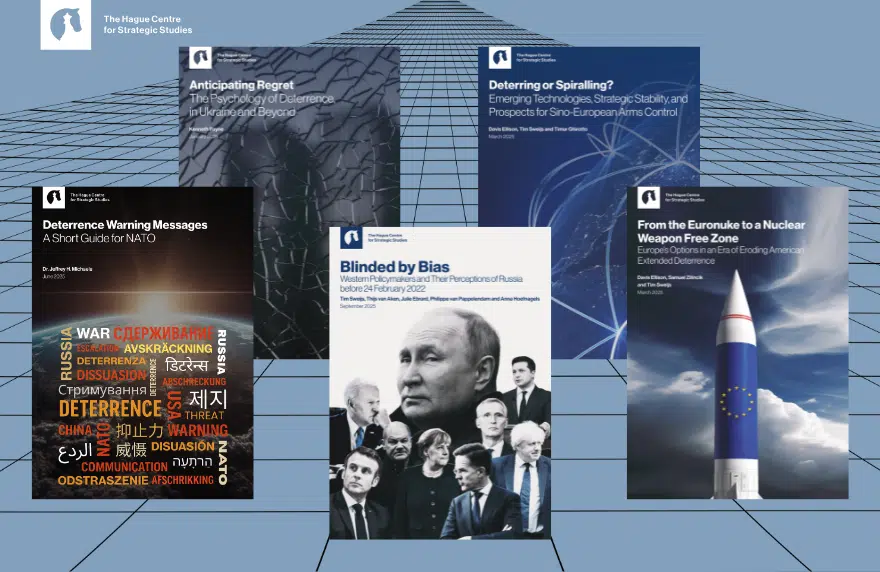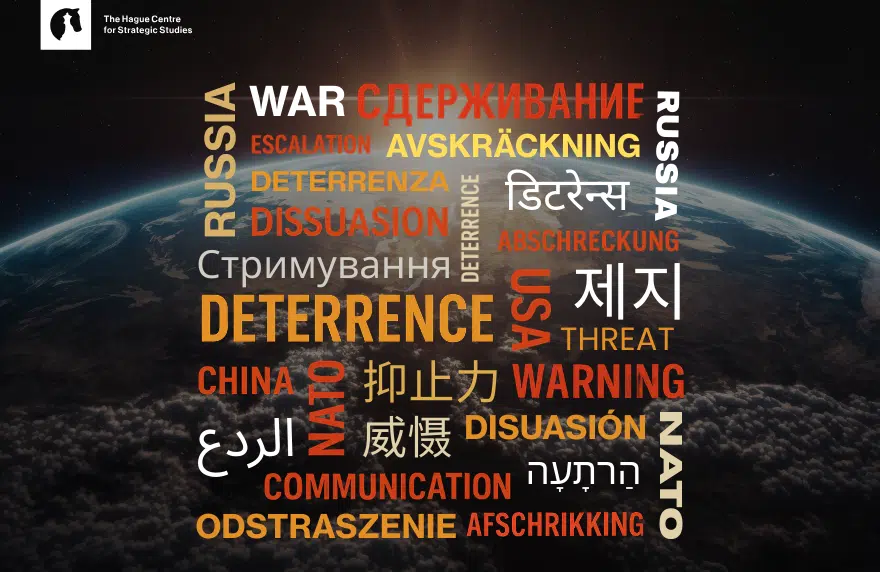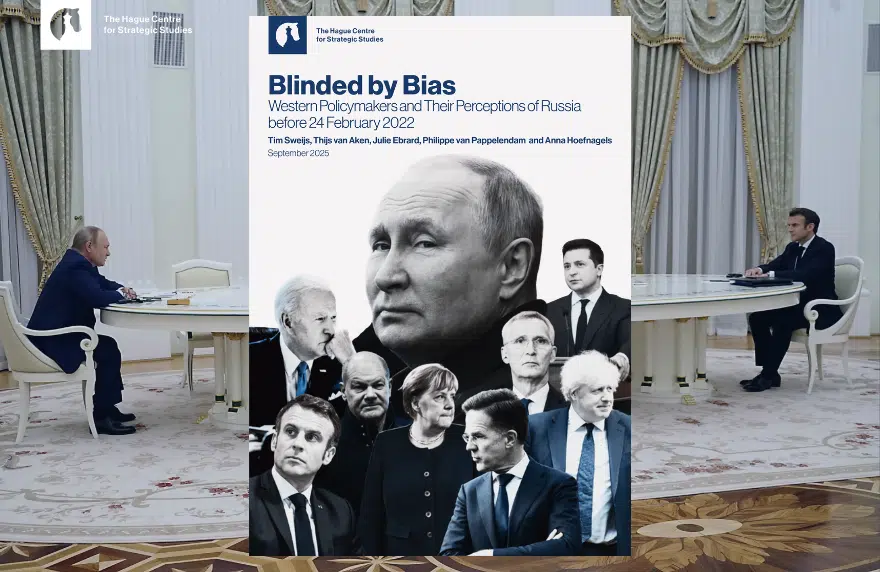The HCSS Strategic Stability: Deterrence and Arms Control programme examines the full spectrum and dynamics of contemporary deterrence. With groundbreaking research from our team of experts, we explore how political signalling, psychological biases, and emerging disruptive technologies shape deterrence and arms control today, providing policymakers with practical insights to anticipate risks, avoid miscalculation, and craft more credible strategies and policies for stability in a turbulent world.
Deterrence is about raising the costs and risks of unwanted actions by an adversary to dissuade them from taking those actions. Arms control involves finding common ground between adversaries on which costs and risks are acceptable with an eye towards promoting (strategic) stability. Both deterrence and arms control have become increasingly complex in today’s geopolitical landscape. Geopolitical revisionism in combination with the proliferation of weapon and delivery technologies puts pressure on stability across the globe. Nuclear multipolarity is a fact as nuclear powers are actively modernising and upgrading their nuclear arsenals.
Meanwhile, the maturation of conventional deep precision strike complexes affects offense-defence balances in different ways as recent real world developments showcase. Integrated air and missile defence systems are vital components of denial and thereby deterrence postures. In Europe, growing uncertainty over America’s long-term commitment to European security raises fundamental questions about the credibility of extended deterrence. This puts renewed focus on the British nuclear capability and France’s nuclear force de frappe as well as the role of European conventional forces in sustaining a credible deterrent posture.
In the Strategic Stability: Deterrence and Arms Control programme HCSS examines the dynamics of contemporary deterrence, assesses risks of escalation, formulates concepts and strategies, and identifies arms control measures to promote stability. We consider the full spectrum of deterrence and arms control: from how political leaders communicate intentions and signal capabilities to how these messages are received; from strategic concepts underlying conventional and nuclear deterrence postures in Europe and the Indo-Pacific to the required capability packages that underpin them.
We also analyse how emerging disruptive technologies (EDTs) such as hypersonics, cyber capabilities, and artificial intelligence are transforming the very foundations of deterrence, creating new risks for escalation but also opportunities for restraint and arms control. We look deeply into decision-making during crises to better understand fears of escalation, and prior to crises how assumptions about technologies worsen fears amongst countries’ leaderships.
Our team consists of experts from academic and military backgrounds who have published extensively on deterrence and arms control and/or decades of professional hands-on experience, including HCSS Research Director Dr. Tim Sweijs, Strategic Analyst Dr. Davis Ellison, strategic advisor defence and international security Dr. Jeffrey H. Michaels, HCSS Founder Prof. Dr. Rob de Wijk, Principal Scientist Stephan de Spiegeleire, advisors Lt Gen (ret.) Nico Tak, Col (ret.) Peter Wijninga, and Lt Col (ret.) Patrick Bolder, and senior research fellows Dr. Alexander Klimburg and Dr. Michael Raska. Together, the team seeks to inform policymaking to create a safer and more secure world, engaging policymakers, diplomats, and security experts across Europe and around the world.
Recent Research
The HCSS team and international guest experts publish a steady stream of books, reports, articles, and papers on deterrence that shed light on the evolving challenges of deterrence. Recent research includes:
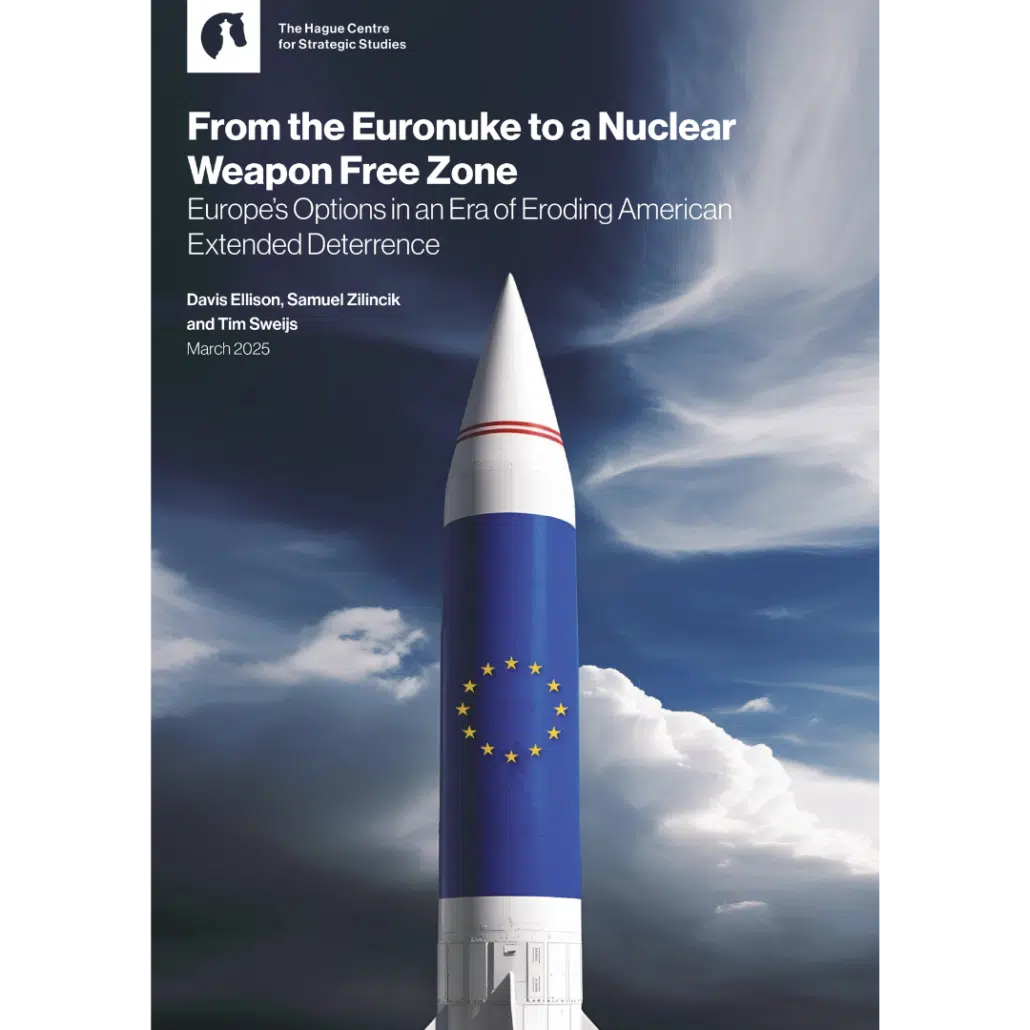
From the Euronuke to a Nuclear Weapon Free Zone: Europe’s Options in an Era of Eroding American Extended Deterrence (Ellison, Zilincik, Sweijs) examines the growing uncertainty surrounding U.S. security guarantees to Europe. With Washington increasingly focused on Asia and adopting a transactional approach to alliances, European states face difficult choices about how to secure their own deterrence. The report explores six potential pathways, from nuclear latency and shared European nuclear forces to enhanced conventional strike capabilities or even a European nuclear-weapons-free zone. Each option comes with political, strategic, and arms control implications. The study urges European leaders to move beyond automatic reliance on U.S. deterrence and to consider new frameworks for their own security. (report link)
Deterring or Spiralling? Emerging Technologies, Strategic Stability, and Prospects for Sino-European Arms Control (Ellison, Sweijs, Ghirotto) warns that EDTs threaten to destabilize nuclear deterrence by enabling first strikes, disrupting command-and-control systems, and fuelling arms races. The report focuses on Europe’s role in engaging China, recommending practical steps to reduce risks — from limiting AI use in nuclear decision-making to enhancing transparency in hypersonic development. In a world where technological innovation is accelerating faster than strategic restraint, this study provides a roadmap for Europe to help prevent spirals of escalation. (report link)
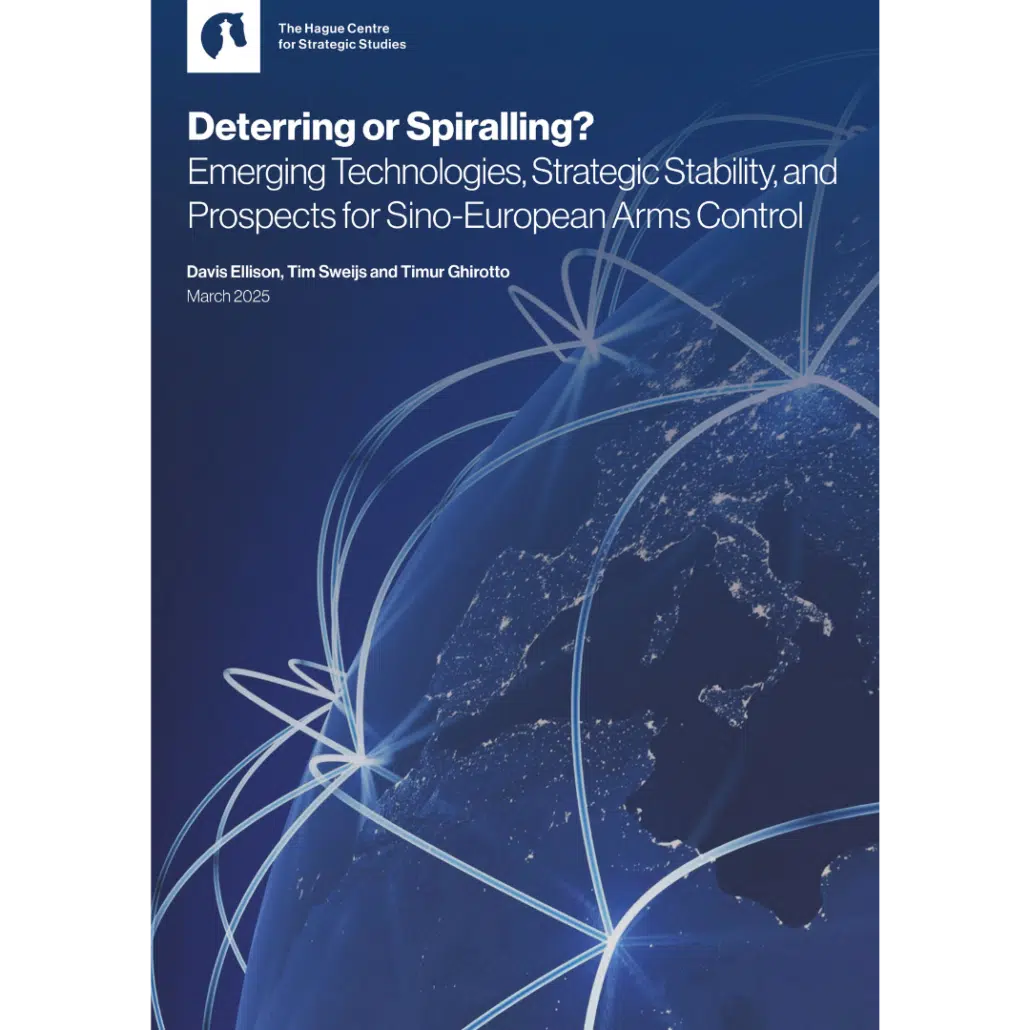
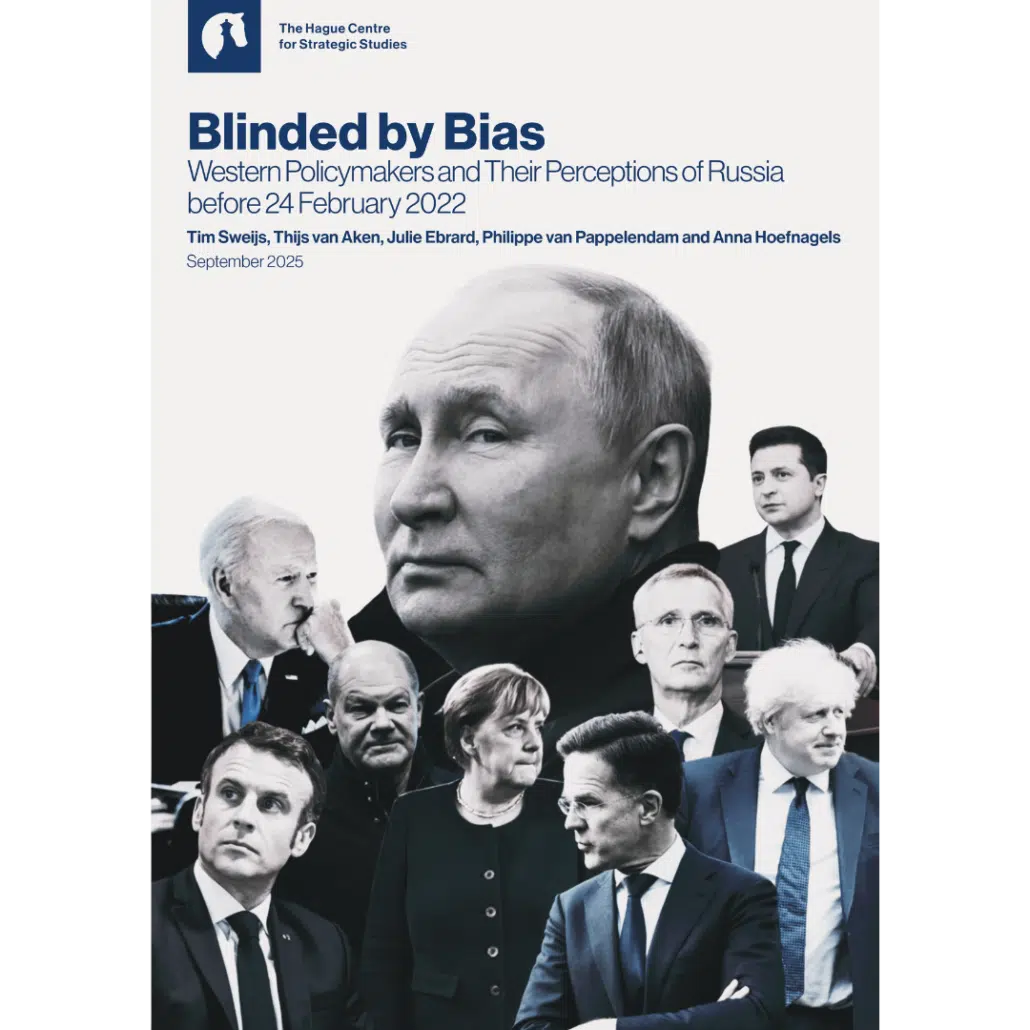
Blinded by Bias: Western Policymakers and Their Perceptions of Russia before 24 February 2022 (Sweijs et al.) investigates why so many Western governments failed to anticipate Russia’s full-scale invasion of Ukraine. Based on 44 interviews with senior officials across NATO member states, the study identifies seven key biases — from mirror imaging to groupthink — that distorted policymakers’ perceptions of Russian intentions. The report’s sobering conclusion is that while war may not have been preventable, better recognition of these biases could have enabled faster and stronger responses. For today’s policymakers, the lessons are clear: effective deterrence requires constant vigilance against the cognitive blind spots that cloud judgment. (report link)
Deterrence Warning Messages: A Short Guide for NATO (Michaels) highlights a dimension of deterrence too often overlooked: language. Military capabilities matter, but so do the words used to communicate threats and red lines. Drawing on a century of historical cases, Michaels demonstrates how vague or poorly timed warnings have contributed to deterrence failure — and how clearer, more credible communication could help NATO avoid similar missteps. In the wake of Russia’s war against Ukraine, the report provides timely lessons for policymakers seeking to prevent escalation and strengthen NATO’s deterrent posture. (report link)
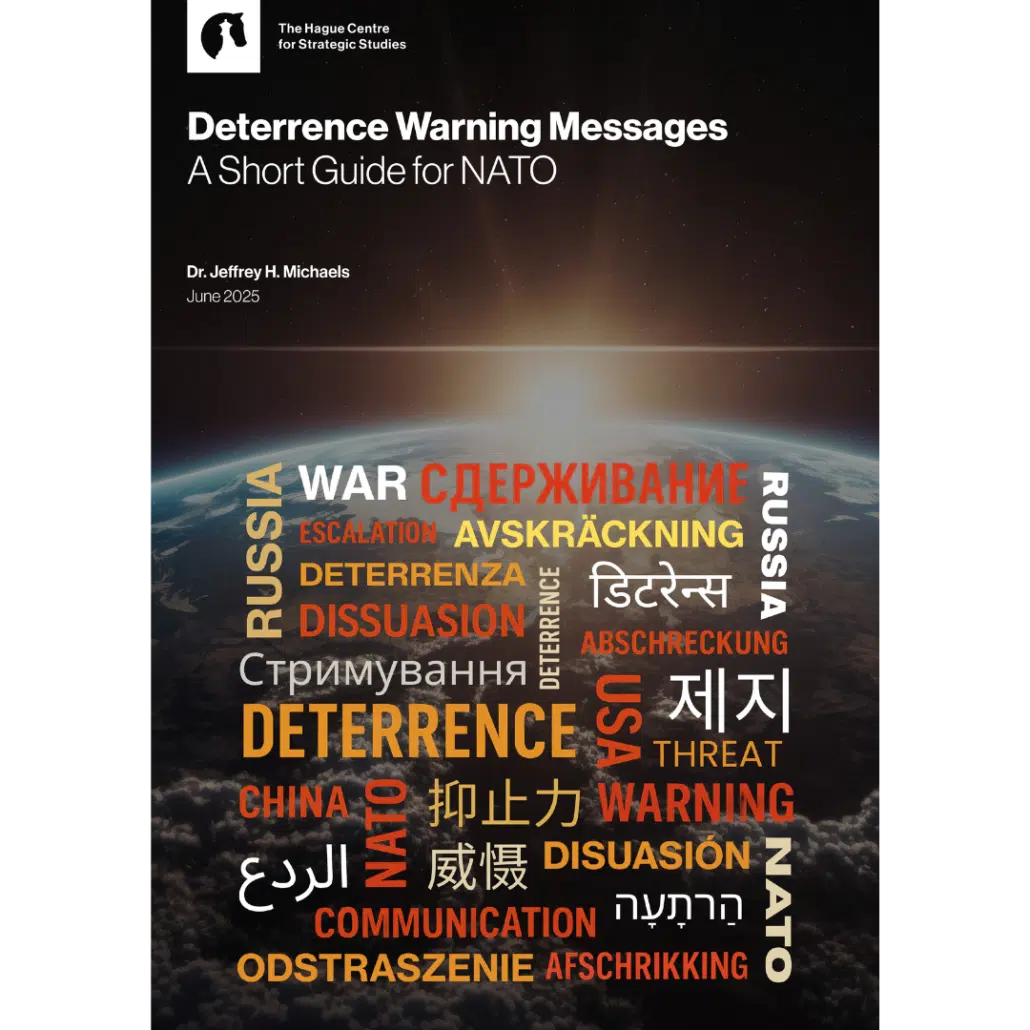
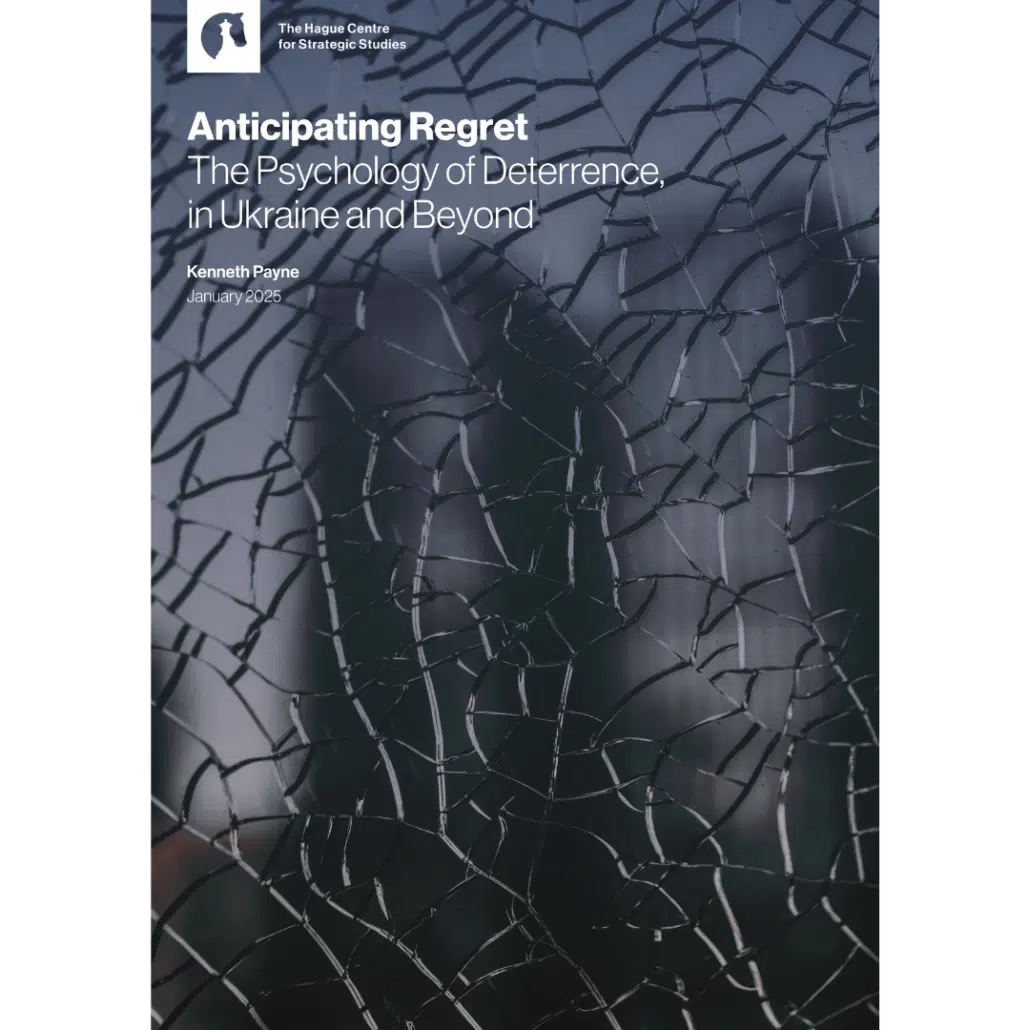
Anticipating Regret: The Psychology of Deterrence, in Ukraine and Beyond (Payne) takes a different angle by focusing on “knowing thyself.” It argues that deterrence is not only about predicting adversaries’ behaviour but also about understanding how our own preferences, priorities, and risk appetites change over time. Western leaders sincerely sought to deter Russia, but underestimated Ukraine’s importance before the invasion — a classic case of failing to anticipate future regret. Payne advocates for a more dynamic approach to deterrence planning, including measures such as bias-awareness training and regularly revisiting baseline assumptions. (report link)
A Comprehensive Approach
Together, these recent studies from The Hague Centre for Strategic Studies demonstrate and sharpen our understanding of the multifaceted nature of deterrence in today’s multipolar world, from the political and psychological, to the technological:
- Signalling: Credible and well-timed communication is essential for deterrence success.
- Knowing your opponent: Avoiding mirror imaging and grasping adversaries’ intentions and capabilities is vital.
- Knowing yourself: Recognizing biases and anticipating how our own views may evolve is just as important.
- Technology’s disruptive edge: AI, hypersonics, cyber, and space systems are reshaping the foundations of strategic stability.
- New frameworks for European security: With growing uncertainty surrounding reliance on U.S. deterrence, European states face difficult choices about how to secure their own security.
About the HCSS Strategic Stability: Deterrence and Arms Control Programme
Deterrence and arms control are often seen as opposites: one focuses on threats, the other on cooperation. At HCSS, we take a different view. Deterrence and arms control are two sides of the same coin — complementary tools that can raise the costs of aggression, reduce the risks of miscalculation, and stabilize relations between rivals.
Deterrence without arms control risks arms races and spirals of instability. Arms control without credible deterrence lacks the foundation of security needed for cooperation. By integrating both perspectives, our programme provides policymakers with the tools to prevent conflict, manage competition, and safeguard peace.
In today’s world of intensifying geopolitical competition, new technologies, and eroding trust, understanding this interplay has never been more urgent.
With groundbreaking research from our team of experts, our Strategic Stability: Deterrence and Arms Control programme explores how political signalling, psychological biases, and emerging disruptive technologies shape deterrence and arms control today. From NATO’s deterrence and defence posture to Europe’s nuclear options on to the destabilising effects of AI and hypersonics, our research provides policymakers with practical insights to anticipate risks, avoid miscalculation, and craft more credible deterrence strategies and arms control policies for stability in a turbulent world.

